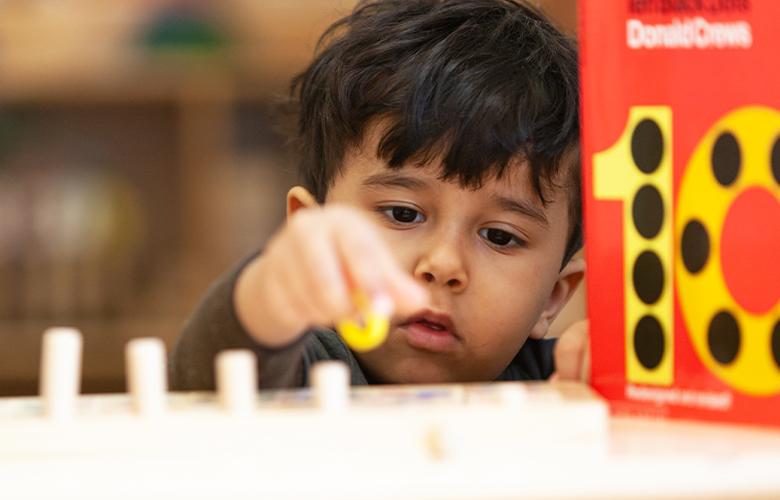
Many families read aloud to help their children develop literacy skills. Yet far fewer families realize that they can play an equally vital role in promoting their children’s early math learning.
In EDC’s Young Mathematicians in Worcester (YM-W) project, my colleagues, our partners, and I are working to support families in this important role. Specifically we are:
- Striving to expand opportunities for families to explore early mathematics and foster positive attitudes toward math, so that every child sees themselves as a mathematics learner
- Raising awareness of the importance of early math and working with educators and families to connect and enhance early math learning at home, at school, and in the community (at libraries!)
We have four approaches to create what we call strong Family Math Learning Communities:
1. Support families in incorporating math into daily activities and conversations. Families are often surprised by how easy this is and how much math can be found in their normal routines. Some examples include counting plates and forks to set the table, sorting laundry, and comparing the sizes and shapes of common objects.
2. Share home versions of classroom math games. Accompanied by easy-to-follow instructions in multiple languages, we share fun and easy-to-use math games that foster children’s persistence, problem-solving, puzzling, and strategy selection skills. The games also promote children’s mastery motivation, executive function, and social-emotional skills.
3. Provide math mini-books in multiple languages. These easy-to-read books can be printed in black and white and assembled at home. Mini-books complement math games and give families a fun way to help children deepen their learning by reading the books together and practicing math concepts at home.
4. Use text messages and social media to engage families. Our community outreach includes “Math Monday” text messages—easy “on-the-go” ideas for how to include math in everyday interactions with children. We also have active Facebook and Twitter accounts.
Family math advisors—mostly parents of children from Worcester Head Start and Worcester Family Partnership—are vital to the success of YM-W. They are working with us to improve our math games and brainstorm new strategies to reach more families.
Our YM-W evaluation findings indicate that participating families are gaining confidence in their ability to engage in math activities with their children.
We invite you to explore our website to learn more about how you can support family math with your children. Then please share your comments, experiences, and questions below!
| Louisa Anastasopoulos, an EDC senior researcher and project director, leads family outreach for the YM-W project. She is the co-author of EDC’s Early Language and Literacy Classroom Observation (ELLCO) Pre-K Tool. |

Comments
Add new comment